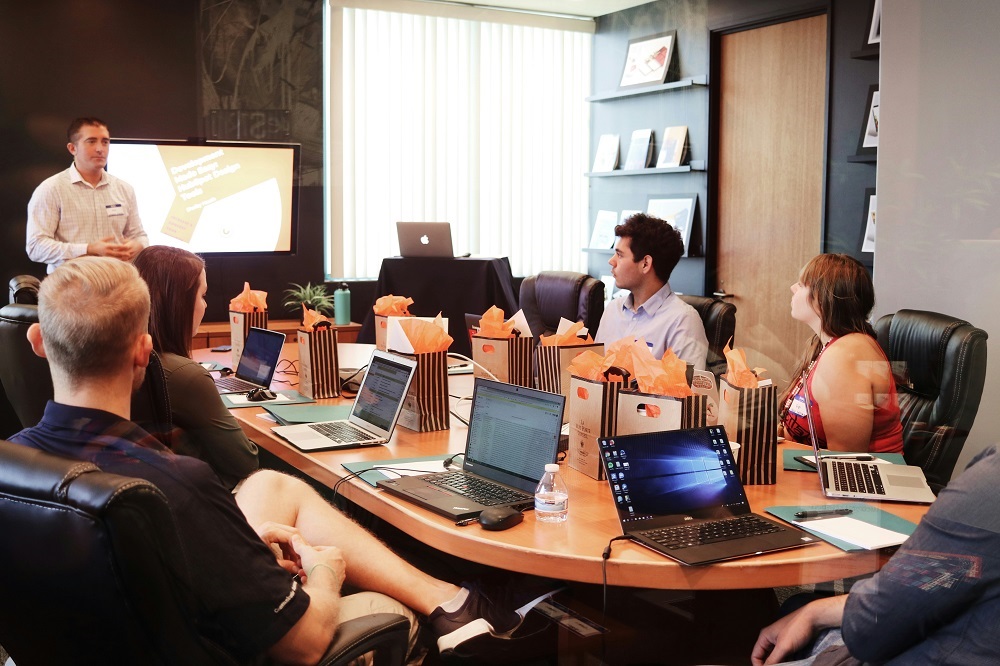Today, the integration of generative AI into the workplace has sparked intense debate. While it is being perceived as a game-changer for productivity and knowledge enhancement, it is also raising concerns over potential downsides such as burnout and information overload.
With these growing technological advances, a new type of knowledge worker is entering the talent pool. Augmented with generative AI, this employee can perform tasks faster, create personalized marketing content, and summarize hundreds of documents in seconds. While these are impressive productivity gains of generative AI, employees also need to expand their current capabilities to work in unison.
How Generative AI Can Equip Employees?
The power of generative AI is as strong as people's willingness to integrate it into their operations. Oftentimes, organizations are focused on how generative AI can help simplify and automate everyday processes. While such measures can increase productivity, executives are overlooking the rare opportunities to revolutionize the potential of their employees and pioneer a new future for their organization.
Read more: The Future of AI Content Generation: Recognizing the Full Potential of GPT-4
Generative AI is the new future that will encircle the evolving landscape of work, shape the changing workforce, and boost advancements in technology. Its ability to rapidly take on new types of work with generative AI will be a game-changer for employees and companies alike. Due to this reason, organizations need to envision the technology not as a standalone but in the context of their workforce. It can help organizations reimagine different job roles and drive improved outcomes along with enhanced business value. However, leaders need to effectively manage the risks to reap significant rewards.
Generative AI can be used to help reveal untapped employee potential and reinvent workflows. When leveraged strategically by integrating the systems, data, and people with tech, generative AI can help bolster a future of work strategy and even forecast employee potential.
Managing the Transition
Generative AI tools enable employees to streamline their operational workflows, automate repetitive tasks, and offer quick access to insights that might otherwise take hours to discover. A digital co-pilot, AI offers guidance, automating everyday tasks and enabling employees to focus on higher-order thinking. It has become an essential productivity booster, offering employees a competitive edge in knowledge and work. This ability to augment human intellect backed with AI-driven knowledge indicates that today's employees are empowered to make smarter decisions faster.
The new augmented workforce will be able to perform tasks and utilize the tool's capabilities skillfully. Let's understand the core implications for company leaders.
Read more: Data Dominion: Taking Charge of Your Business Intelligence
-
Learning and Development
Employees seeking paths to senior roles or leadership can successfully advance their careers in a GenAI-augmented workforce. It can offer them the flexibility to take on different roles and cultivate new skills for long-term retention.
While GenAI has an immediate aptitude-expansion effect, learning and development are still most significant for cultivating advanced skills as well as supporting every employee’s professional trajectory. When specifically used for learning, Gen AI is an effective personalized training tool. Therefore, leaders must ensure that their employees have time to learn. Organizations can gain a competitive advantage from developing tools and processes that help in precisely assessing the capabilities of GenAI models for their use cases.

-
Talent Acquisition
When augmented by GenAI, employees can perform their operations with ease. This also suggests that the talent pool for a skilled workforce is expanding. Recruiters can incorporate GenAI into the interview process to get a complete picture of what a prospective employee should be capable of when augmented by the technology.
-
Teaming and Performance Management
With the integration of Generative AI, it will be crucial for teams to manage their performance as well as ensure the quality of their output. This implies designing cross-functional teams to provide generalists with easy access to an expert when they need help and establish regular output review checkpoints. Leaders must run pilots to ensure their team configurations help in generating the best outcomes. This will further offer opportunities to break silos and integrate teams with experts from different centers of excellence.
Read more: Bias Problem in ChatGPT: Challenges and Limitations
-
Professional Identity
The impact of GenAI on professional identity is a critical aspect to consider. Organizations need to mitigate the negative impacts, ensuring that employees feel supported by their employers. While generative AI can help enhance an employee's problem-solving skills, equipping them to achieve faster outputs, it can sometimes pose as an identity theft for them. This suggests that highly skilled employees can enjoy using the tool, allowing them to feel more confident in their roles. Mandating the use of AI can improve employee perception of AI. However, this is only true if employees believe AI is being deployed for their benefit. 
- Strategic Workforce Planning
With generative AI, organizations reinvent their specialized expert tracks as well as the structure of their workforce. Considering the ongoing job transformation and technological advancements, they can incorporate strategic workforce planning for knowledge work. Due to the emergence of generative AI, workforce planning will no longer focus on finding a certain number of people with specific knowledge and skills. Instead, organizations can focus on behavioral skills and enablers to support a more flexible workforce.
Key Takeaways
- GenAI is not just a tool for increasing productivity and broadening the range of tasks employees can perform.
- For industry leaders, transitioning to a GenAI-augmented future is likely to have profound implications for talent acquisition and internal mobility, along with employee learning and development.
- Generative AI can be beneficial for teaming and performance management, as well as strategic workforce planning.
Read more: A Friend or a Foe: Advanced Conversational AI & its Implications
Final Thoughts
Beyond just augmenting employees with AI, it is important to take into consideration how AI tools are enhanced by the human element. Generative AI is still in its learning phase, and while it can process vast data sets, it relies on human interaction to refine the outputs. Employees offer valuable feedback loops, enabling AI frameworks to evolve and improve. In this sense, it is not just how employees use AI but how employees assist in shaping and augmenting AI tools.
While the benefits of AI augmentation are undeniable, organizations need to take the information overload side of generative AI into consideration. GenAI tools are capable of boosting knowledge and productivity, but there is a tipping point with AI. While these AI tools enable employees to stay informed and efficient, overreliance can lead to cognitive burnout, making it necessary for organizations to implement strategies that help in balancing AI-driven inputs. Frequent use of AI tools can overwhelm employees with data. This phenomenon can lead to mental fatigue, making it challenging for employees to process and recover. The sheer volume of data AI provides can also blur focus, leaving employees feeling more drained than productive.
A leading enterprise in Generative AI solutions, SG Analytics focuses on unlocking unparalleled efficiency, customer satisfaction, and innovation for the client with end-to-end AI solutions. Contact us today to harness the immense power of artificial intelligence and set new benchmarks in operational efficiency, customer satisfaction, and revenue generation.
About SG Analytics
SG Analytics (SGA) is an industry-leading global data solutions firm providing data-centric research and contextual analytics services to its clients, including Fortune 500 companies, across BFSI, Technology, Media & Entertainment, and Healthcare sectors. Established in 2007, SG Analytics is a Great Place to Work® (GPTW) certified company with a team of over 1200 employees and a presence across the U.S.A., the UK, Switzerland, Poland, and India.
Apart from being recognized by reputed firms such as Gartner, Everest Group, and ISG, SGA has been featured in the elite Deloitte Technology Fast 50 India 2023 and APAC 2024 High Growth Companies by the Financial Times & Statista.









